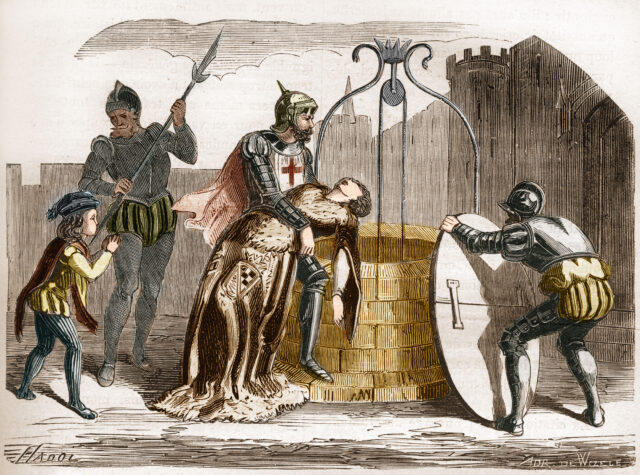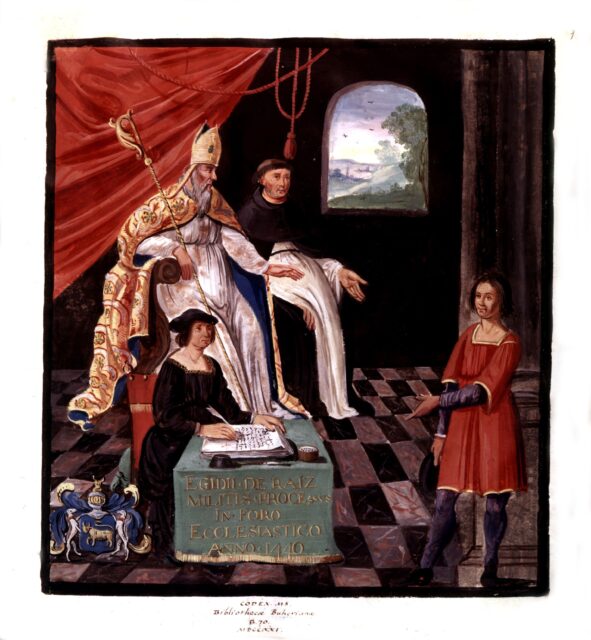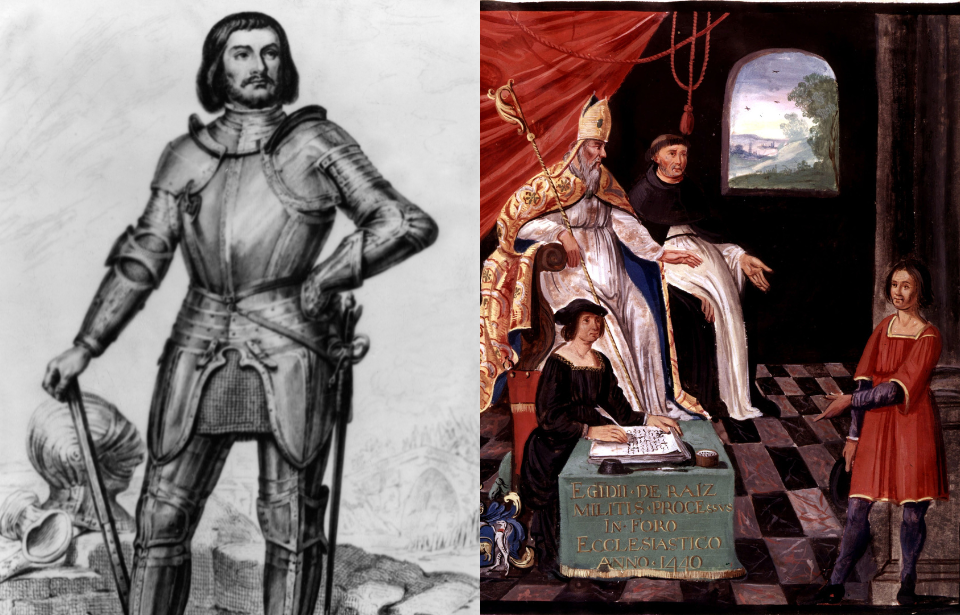The name Gilles de Rais often evokes a sense of mystery and intrigue, shrouded in the dark annals of history. This enigmatic figure from medieval France has been the subject of fascination and controversy for centuries. From his noble origins to his notorious reputation as history’s first serial killer, the life of Gilles de Rais is a complex tapestry of triumph and tragedy, bravery and infamy. Join us as we embark on a journey to unravel the enigma that is Gilles de Rais, delving into his early life, military exploits, descent into darkness, and trial.
Gilles de Rais’s early life and noble origins

Born into a noble family in 1404, Gilles de Rais inherited vast estates and immense wealth as a young boy following the death of his parents. His privileged upbringing provided him with access to the finest education and the trappings of aristocratic life.
As he matured, Gilles de Rais demonstrated exceptional skill in various pursuits, including music, literature, and military strategy. His early years were marked by promise and potential, with many envisioning a bright future for the young nobleman.
The military exploits of Gilles de Rais

Gilles de Rais’s prowess on the battlefield quickly became the stuff of legend. Renowned for his strategic brilliance and fearlessness in combat, he emerged as a celebrated military leader during the Hundred Years’ War. In 1429, he went into alliance with his cousin Georges de La Trémoille and, within the same year, became Marshal of France thanks to his successful military campaigns.
His valor and tactical acumen earned him the respect and admiration of his peers, as well as the favor of the king. Gilles de Rais’s contributions to the war effort were instrumental in shaping the course of history, solidifying his legacy as a formidable warrior and commander.
The downward spiral and descent into darkness

Despite his early achievements, Gilles de Rais’s life took a dark turn that would forever stain his reputation shortly after the death of his grandfather Jean de Craon in 1432 and his cousin Georges de La Trémoille’s fall from grace in 1433. Following the war, he descended into a world of decadence and excess, squandering his vast fortune on extravagant pursuits. As his behavior grew increasingly erratic, rumors of sinister activities began to swirl around him.
It was during this period that Gilles de Rais’s name became synonymous with unspeakable acts of depravity, leading to a fall from grace that would forever alter his place in history. His downfall in public view started once he was arrested for allegedly assaulting and/or kidnapping cleric Jean Le Ferron, which was seen as undermining the majesty of John V, Duke of Brittany.
The trial outcome and execution

The shocking revelations surrounding Gilles de Rais’s heinous crimes ultimately were brought up after his arrest, some of which entailed heresy, sodomy, and murder. Accused of engaging in a series of gruesome murders involving around 140 or more young children, Gilles de Rais faced a swift and merciless reckoning.
The trial, filled with lurid details and damning testimony, captivated the public imagination and cemented his legacy as history’s first documented serial killer. Despite his attempts to mount a defense, Gilles de Rais was ultimately convicted and met a grim fate at the hands of the executioner. His sentence was to be hanged and burned at the stake, and he was sent to the scaffold along with two of his servants, who were also convicted of murder.
Read more: Cecil Hotel: The Los Angeles Lodging With a History Marred By Tragedy
In the annals of history, few figures loom as large or as enigmatic as Gilles de Rais. His life journey—from noble beginnings to ignominious downfall—continues to spark fascination and debate, inviting us to confront the complexities of human nature. Whether viewed as a cautionary tale, a historical enigma, or a symbol of moral ambiguity, he remains a compelling figure whose story resonates across the centuries, inviting us to grapple with the enduring mysteries of the human condition.
